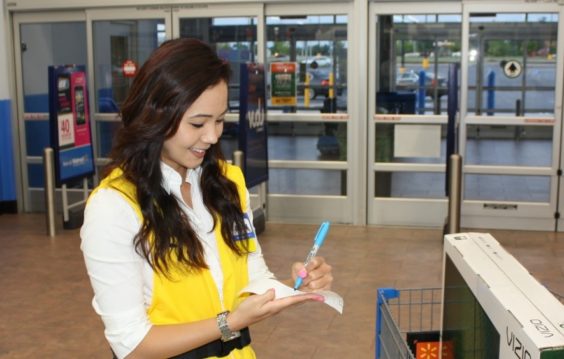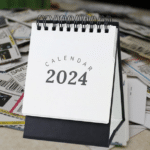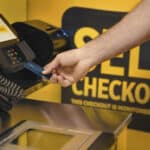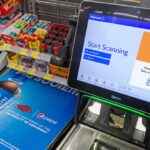
There are few things more annoying than making it all of ten feet past the checkout at Walmart, before running into a friendly “greeter” who decides to rummage through your bags to make sure you didn’t steal anything.
One way you might be able to avoid such scrutiny – don’t use so many bags when you go through self-checkout.
And also, don’t steal stuff.
Since reintroducing greeters in its stores last year, in part to help deter theft, Walmart has come up with another idea – automatically counting the bags you use when checking out, and alerting the greeter if you use too many. That could be an indication that you bagged more things than you actually paid for.
Walmart describes the idea in a newly-published patent application for a “System and Method for Estimating Bags Necessary for Items Purchased by a Consumer”. The application envisions a system that would examine the items purchased, to estimate the number of bags needed. “The estimated number of bags is used to determine the likelihood of unpurchased items being taken by the consumer,” the application explains. If the actual number of bags used is greater than the estimated number, that information would be sent to a greeter’s mobile device, “indicating that a security search of the consumer should be performed based on the comparison.”
When you scan your items at the checkout, the system would consider “volume information, weight information, size of the packaging of the item, and likelihood of the product being placed with other products.”
Consider this example, as described in the application. A customer “can select the following items for purchase: a loaf of bread, a carton of eggs, a box of laundry detergent, three bottles of spices, four shirts, six pairs of socks, a swimsuit, and a bag of potato chips.” The system “might estimate that the bread, eggs, potato chips, and laundry detergent will each be in separate bags” – the food items, so they don’t get crushed, and the detergent, because it’s too bulky and heavy to share a bag with any other items. The remaining items are small and lightweight enough to be placed into a single bag. Therefore, the system “will generate an estimate of five bags used by the consumer.”
That esimate will be forwarded to the greeter. If you try to leave the store with more bags than expected, you’ll get stopped for a thorough inspection.
So what happens if you just like to separate your items into more bags than the average shopper? Well, get ready to be “greeted” by Walmart’s greeters a lot more often.
Walmart acknowledges that estimating the “correct” number of bags to use is an inexact science. “Some consumers are less efficient at bagging their items and others are more efficient,” the application notes. “In addition, the grouping of items in a bag might be a judgment call – for example, some consumers might prefer the potato chips to be in the same bag as the loaf of bread while other consumers might prefer that those items be placed in separate bags.”
Another potential limitation of the system – if you’re going to steal something, would you be obvious about it by putting it into its own separate bag? Or would you do exactly what the application suggests most people wouldn’t do – slip that extra item into the same bag as your eggs or bread, in order to evade detection and avoid the greeter?
So the system is far from foolproof. Even so, it could serve as a deterrent to would-be shoplifters, if they know that one false move – or one extra bag – will put them at greater risk of being singled out for inspection.
It’s just another tool that Walmart may use to help deter theft. And just another way to experience more personal greetings from your friendly neighborhood Walmart greeter – whether you welcome the extra attention, or not.
Image source: Walmart











Cool now all I have to do is tell my lifting accomplice to use separate bags for all 35 items while I waltz past the greeter who will be busy checking the decoy bags. Thanks Wal Mart. You loss prevention ideas make stealing from you easier much easier now thanks to that helpful bit of info and logic.